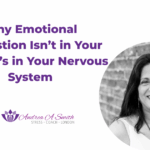‘How often has someone said to you, ‘how to stop overthinking about something!’ If you are reading this article, chances are, It’s happened enough times to worry you. Maybe no one has said it yet, but you are starting to think you might be indulging in some overthinking.
Ask yourself these questions. Is it difficult for you to stop thinking and dissecting incidents (happy and troubling ones) from the past? Are you always stressed and tensed from anticipating problems and finding solutions to potential issues yet to happen? Do you feel as if you have no control over the things that will happen next? Well, these are the classic signs of overthinking. And if you answer yes to them, or know someone who does, read on.
Thinking, analyzing, planning, and reviewing are good proactive things. It only becomes a problem when you spend so much time doing this that you start to experience anxiety, heightened stress, loss of sleep, fatigue, and depression. How to stop overthinking about something as it impedes living a successful, happy life. The good news is there are things you can do to stop overthinking and worrying about everything.
There are things you can control and things beyond your control. In this post, we will offer you practical tips to help you put things into perspective, help you stop stressing over every little thing, and help you convert needless worry into proactive behaviour.
Allow these tactics like’how to stop overthinking’ to encourage you to once again live your life to the fullest every day!
-
Determine the things that cause you to overthink (how to Stop Overthinking)
Are you a chronic worrier (you worry about everything all the time)? Do you start to overthink when something has disturbed you, and you can’t come to terms with it? Is a situation looming at work, and you have no real control over it?
You will find that the things you fear are the ones causing you to worry. You may fear losing a loved one, your social standing, or a job promotion. Or you are afraid that your past reaction is what cost a relationship to unravel.
- Replace how you perceive fear
So you have identified what scares you and causes you to think. Most likely, it is a fear of failure at some level. You have assumed complete responsibility for this failure and now feel you must ensure you never fail again.
You need to replace these fear messages with messages of acceptance and self-worth. Forgive yourself, and realise and accept your humanness.
Yes, I made a mistake. To err is human. I survived a difficult time. I know there will be more difficult moments in the future. I know I have what it takes to survive another difficult time.
Accepting responsibility is a positive thing to do. Allowing shared responsibility for the loss of a relationship is also a mature thing to do. You were not in the relationship alone; you do not have to assume sole responsibility for it ending.
- Let go of worry
Easier said than done? True. But does worrying help? To quote Erma Bombeck, a famous writer, “Worry is like a rocking chair: it gives you something to do but never gets you anywhere.”
Understand that some fears are groundless. Accept that you have no control over some situations except in coping with the outcome. Forgive yourself for past mistakes, and let go of the past; it is over.
Take full control and put yourself in a place of power. Prepare for future events – video tutorials, talk to a professional, join in a course, or read books. Get proactive rather than being paralyzed by worry.
- Set a time to reflect
You do not have to attempt not to think at all. On the contrary, thinking is an essential first step; frequent review and analysis is also excellent habit. The problem is not in thought; it is in overthinking, in doing nothing else but thinking.
So give yourself a fixed time to think. Set aside time in the day to ruminate over any or all things that are stressful. Give free rein to all the thoughts plaguing you to come to the surface. Acknowledge them. Strategize, and identify the best possible way available to you at the time to cope with them. Then get up, and act on them.
- Spend more time with people who don’t overthink
Did you know that influence is an excellent help if you wish to stop overthinking? Try engaging with people who seem to balance thinking with action. Their optimism can affect and teach you how not to overthink something.
Now that you are armed with definite but straightforward ways to get a grip on your stress and overthinking patterns, go out and conquer those mountains you’ve set for yourself. And if you need a helping hand to get from overthinking to proactive thinking, reach out and access the help available. So what have you learnt ‘how to stop overthinking about something’, and has this article helped?
I hope you enjoyed this article, ‘how to stop overthinking’ and if you want to read more about How to get rid of negative thoughts) or cope with stress, let’s BOOK a CALL here.










